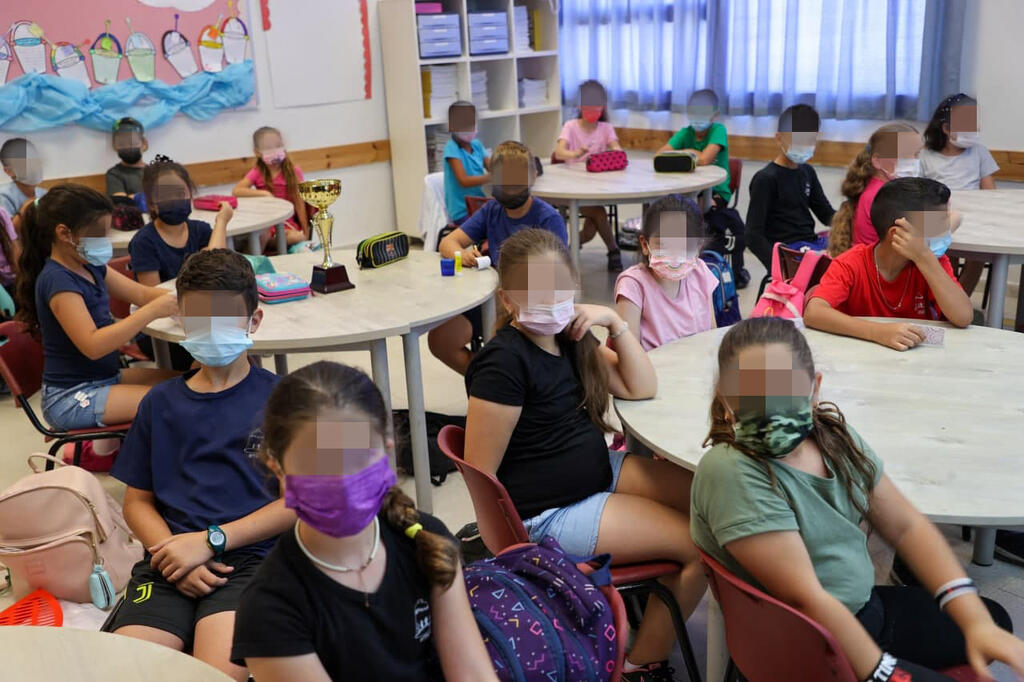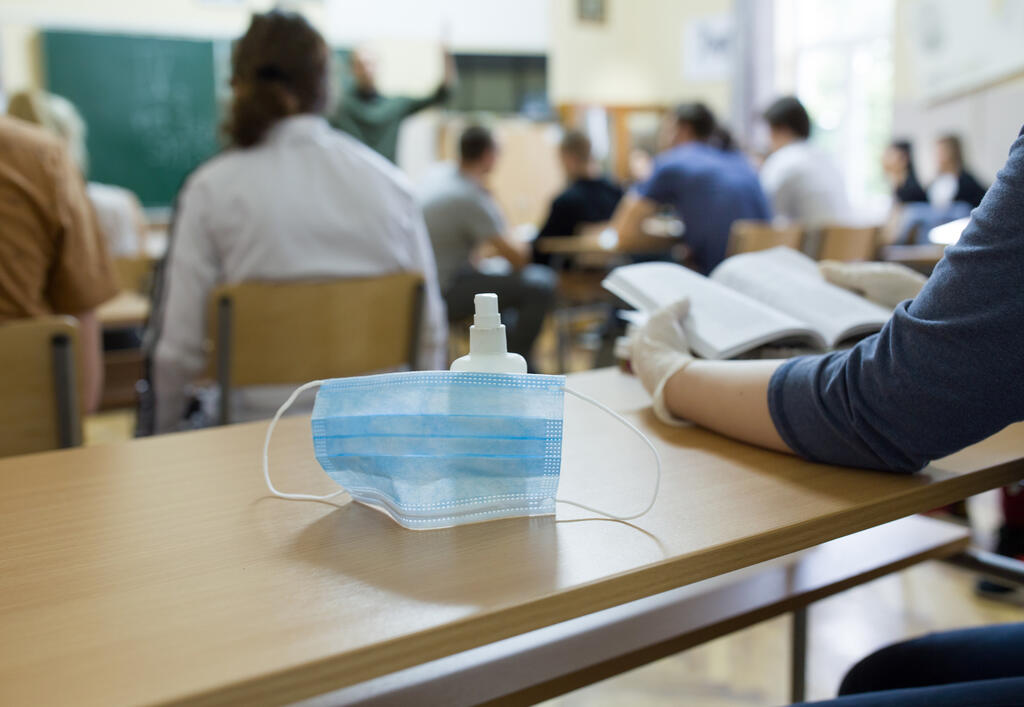Children find it more difficult to recognize faces that are partially covered by COVID-19 masks, according to a new joint Canadian-Israeli study.
Researchers from York University in Toronto and Ben-Gurion University in Be'er Sheva found that mask-wearing in the context of the COVID-19 pandemic also impacted children's "ability to make social interactions with peers and educators, as well as their ability to form important relationships."
2 View gallery


Children wearing face masks in class in a central Israel school during the COVID-19 pandemic, September 28, 2021
(Photo: Yariv Katz)
“Faces are among the most important visual stimuli. We use facial information to determine different attributes about a person, including their gender, age, mood, and intentions. We use this information to navigate through social interactions,” said York University Assistant Professor Erez Freud of the Faculty of Health, the study’s senior author.
Researchers used a children’s version of the Cambridge Face Memory Test, considered the best method for measuring face perception abilities in humans, to test the children’s ability to recognize faces with and without masks.
They looked at 72 children aged six to 14 and showed them pictures of faces, both upright and inverted. They found that children’s face-perception abilities were impaired by as much as 20%. For comparison, previous studies found that masks hindered facial recognition in adults by 15%.
Furthermore, the study found that children’s mental processes used for recognizing faces changed when attempting to recognize masked faces, becoming more analytical over time. Humans, the study noted, usually process the face as a whole rather than by its individual features. This has become impossible when most parts of the face are covered, requiring children to employ new mental strategies.
“Not only do masks hinder the ability of children to recognize faces, but they also disrupt the typical, holistic way that faces are processed,” Freud said.
“If holistic processing is impaired and recognition is impaired, there is a possibility it could impair children’s ability to navigate through social interactions with their peers and teachers, and this could lead to issues forming important relationships. Given the importance of faces to social interactions, this is something we need to pay attention to.”
Freud argued that there should be more research exploring the social and psychological ramifications of wearing masks on children’s educational performance, especially at a time when children around the world are starting to go back to school under restrictive mask mandates.


